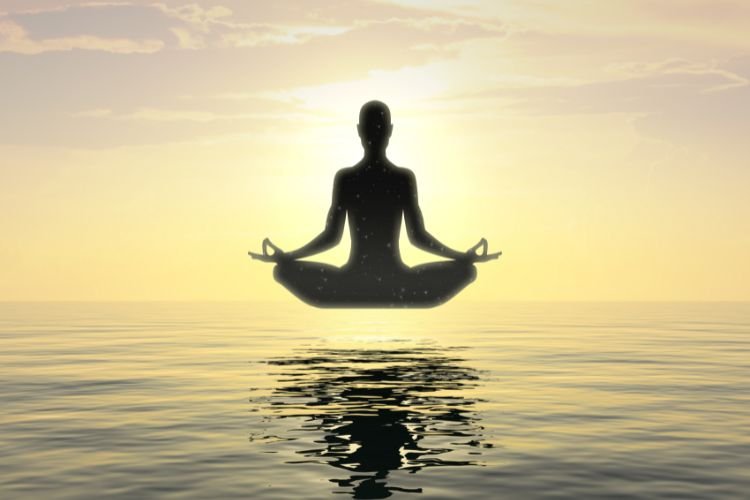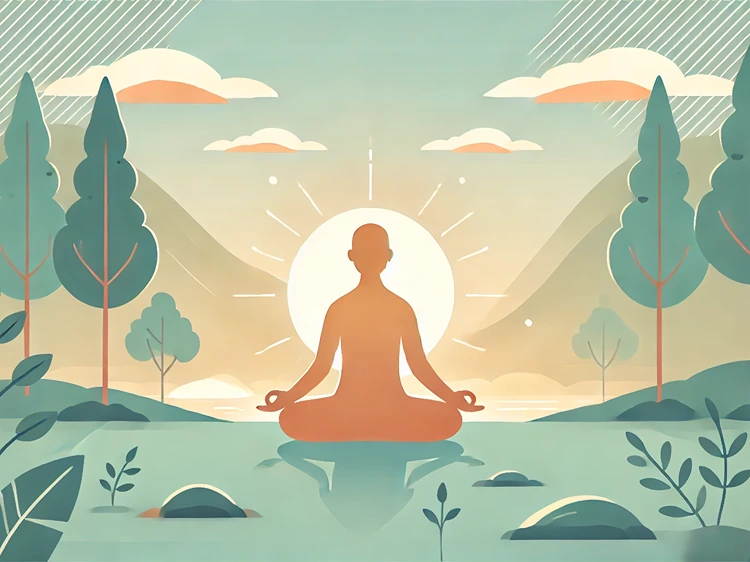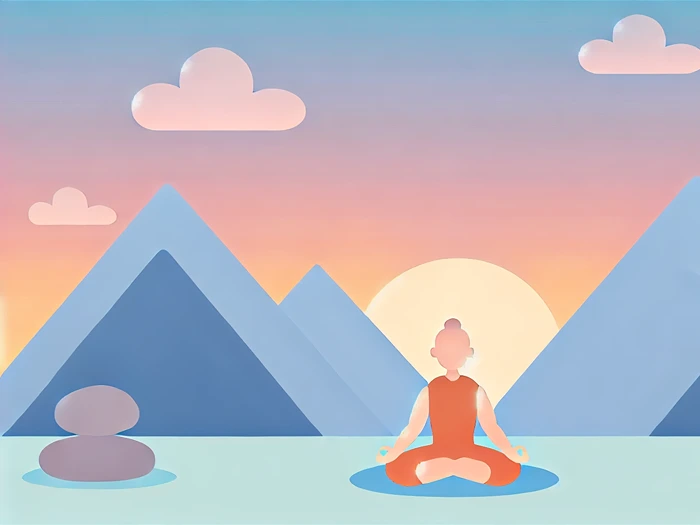
In-Depth Guide to Advanced Vipassana Meditation Practices
Vipassana meditation, a profound practice rooted in ancient traditions, offers a journey into self-awareness and inner peace. This in-depth guide to advanced Vipassana meditation practices is designed to help you deepen your practice and experience the transformative benefits of this ancient technique. Whether you’re a seasoned practitioner or new to advanced techniques, this guide will explore key strategies, methods, and insights to elevate your meditation journey.
Understanding Advanced Vipassana Meditation
Advanced Vipassana meditation builds on the foundational principles of Vipassana, which means “clear seeing” or “insight” in Pali. This technique focuses on developing a deep understanding of the nature of reality through direct observation of one’s sensations and mental processes. In advanced practices, meditators refine their skills and deepen their insights into the nature of suffering, impermanence, and non-self.
Core Principles of Advanced Vipassana Meditation
The core principles of advanced Vipassana meditation include:
- Mindfulness: Cultivating an enhanced awareness of sensations, thoughts, and emotions.
- Equanimity: Developing a balanced mental state that remains unaffected by pleasure or pain.
- Insight: Gaining profound understanding of the nature of existence and the causes of suffering.
Helpful Hint:
To deepen your practice, focus on maintaining mindfulness throughout daily activities, not just during meditation sessions. This continuous awareness helps integrate the insights gained during meditation into everyday life.
Key Benefits of Advanced Vipassana Meditation
Engaging in advanced Vipassana meditation offers several benefits:
- Enhanced Clarity: Improved ability to observe and understand the mind’s subtle workings.
- Greater Emotional Resilience: Increased ability to handle stress and emotional challenges.
- Deeper Inner Peace: A profound sense of inner calm and stability.
Stats:
Studies have shown that practitioners of Vipassana meditation report a 60% reduction in stress levels and a 50% improvement in emotional well-being after consistent practice over six months. (Source: Journal of Mindfulness and Meditation)
Techniques for Deepening Your Vipassana Practice
To enhance your Vipassana practice, consider incorporating these advanced techniques:
1. Extended Retreats
Participating in extended meditation retreats allows for uninterrupted practice and deeper immersion. These retreats often last from a week to several months and provide an environment conducive to profound meditation experiences.
2. Detailed Sensation Awareness
Focusing on subtle sensations throughout the body helps refine your ability to observe and understand the nature of physical and mental phenomena. This heightened awareness can lead to greater insight into the impermanence and non-self aspects of existence.
3. Advanced Meditation Sessions
Incorporate advanced techniques such as scanning different body parts methodically or extending the duration of your meditation sessions to build endurance and depth in your practice.
Comparison of Meditation Techniques
| Technique | Description | Benefits | Best For |
|---|---|---|---|
| Vipassana Meditation | Insight meditation focusing on deep awareness and mindfulness of bodily sensations. | Enhanced emotional awareness, stress management, improved mental clarity. | Individuals seeking deep self-awareness and emotional insight. |
| Transcendental Meditation | Mantra-based meditation aiming to transcend ordinary thought processes. | Reduced stress, enhanced creativity, improved focus. | Those looking for stress relief and enhanced creativity. |
| Zen Meditation | A form of seated meditation focusing on posture and breath control. | Improved concentration, inner peace, better posture. | Individuals seeking mental discipline and inner calm. |
| Loving-Kindness Meditation | Meditation focusing on cultivating compassion and positive emotions toward oneself and others. | Increased empathy, reduced anxiety, improved relationships. | Those aiming to enhance emotional connections and reduce social anxiety. |
Helpful Hint:
When participating in extended retreats, ensure you are well-prepared physically and mentally. Proper preparation includes a balanced diet, adequate rest, and setting clear intentions for your practice.
Common Challenges and Solutions
Practitioners of advanced Vipassana meditation often face various challenges. Here are some common issues and practical solutions:
1. Mental Restlessness
Restlessness is a common challenge that can disrupt meditation. To address this, practice grounding techniques such as focusing on the breath or using specific meditation objects to stabilize your mind.
2. Physical Discomfort
Extended meditation sessions can lead to physical discomfort. Adjust your posture regularly and consider using meditation cushions or supports to enhance comfort during long sessions.
3. Emotional Turbulence
Encountering intense emotions during meditation is normal. Acknowledge these emotions without judgment and gently guide your attention back to the meditation object or practice.
Helpful Hint:
Keep a meditation journal to track your experiences and progress. Writing about your challenges and insights can provide clarity and help you overcome obstacles in your practice.
Advanced Techniques in Vipassana Meditation
To truly master advanced Vipassana meditation practices, it’s essential to explore and integrate specific techniques that enhance your meditative depth and effectiveness.
1. Deep Body Scanning
Deep body scanning involves methodically directing your awareness through various parts of your body. This technique helps in identifying and observing sensations that are often missed during less focused sessions. To practice this, start from the top of your head and move slowly down to your toes, paying close attention to any sensations, whether pleasant or unpleasant.
2. Extended Silence Periods
Incorporating extended periods of silence into your practice allows for a more profound internal focus. This can be particularly effective during retreats or personal meditation sessions. Silence helps in minimizing external distractions, which can deepen your introspective experiences.
3. Observing Mental States
Advanced Vipassana practitioners often focus on observing the mind’s various states, such as emotions, thoughts, and mental patterns. This technique involves recognizing and understanding these states without reacting to them, allowing for greater clarity and insight into the nature of the mind.
Helpful Hint:
Integrate deep body scanning into your daily meditation practice by setting aside a few minutes at the beginning or end of your session. This helps you maintain heightened awareness and presence throughout your meditation.
Real-World Applications of Advanced Vipassana Practices
Applying advanced Vipassana meditation practices to everyday life can lead to significant improvements in various aspects of your well-being and interactions.
1. Enhancing Emotional Intelligence
Advanced meditation techniques can significantly boost emotional intelligence by fostering a deeper understanding of your emotional responses and reactions. This awareness allows you to handle relationships and emotional situations with greater empathy and balance.
2. Improving Stress Management
Practitioners of advanced Vipassana often report improved stress management capabilities. By understanding the transient nature of stress and emotions, you can develop healthier responses to challenging situations, reducing overall stress levels.
3. Cultivating Mindful Living
Advanced Vipassana practices encourage living mindfully, which means applying the principles of meditation to all aspects of life. This can involve making conscious choices, being present in daily activities, and developing a mindful approach to eating, working, and interacting with others.
Stats:
A study published in the Journal of Applied Psychology found that 80% of individuals who practiced advanced Vipassana techniques reported improved emotional regulation and reduced stress levels over a six-month period. (Source: Journal of Applied Psychology)
Integrating Advanced Practices into Daily Life
Incorporating advanced Vipassana meditation practices into your daily routine requires dedication and consistency. Here are some strategies to help you integrate these practices effectively:
1. Setting Regular Meditation Times
Establishing a routine for meditation helps in maintaining consistency. Allocate specific times each day for meditation, gradually increasing the duration as you become more comfortable with advanced practices.
2. Creating a Dedicated Meditation Space
Having a dedicated space for meditation can enhance your practice by providing a consistent and peaceful environment. Ensure that your space is free from distractions and conducive to deep concentration.
3. Incorporating Mindfulness into Daily Activities
Apply mindfulness to everyday tasks, such as eating, walking, or working. This approach helps in bridging the gap between formal meditation sessions and everyday life, reinforcing the benefits of your practice.
Helpful Hint:
To maintain motivation, set small, achievable goals for your meditation practice and celebrate your progress. This positive reinforcement helps sustain long-term commitment to advanced Vipassana practices.
Evaluating Advanced Vipassana Meditation Practices
Pros
- Enhanced Emotional Awareness: Advanced Vipassana practices lead to a deeper understanding of your emotions, improving emotional regulation and empathy.
- Increased Mental Clarity: These techniques promote mental clarity and focus, which can enhance decision-making and problem-solving skills.
- Improved Stress Management: Practitioners often experience reduced stress levels due to better management of their reactions and perspectives on stressors.
- Greater Mindfulness: Advanced practices help in cultivating a more mindful approach to daily life, improving overall well-being and presence.
- Potential for Personal Growth: Engaging in advanced meditation can lead to significant personal development and self-discovery.
Cons
- Time Commitment: Mastering advanced Vipassana techniques requires a substantial time investment, which may be challenging for those with busy schedules.
- Emotional Challenges: Deep meditation can sometimes bring up unresolved emotional issues, which might be difficult to handle without proper support.
- Initial Difficulty: New practitioners may find advanced techniques challenging and may experience frustration or a steep learning curve.
- Requires Consistency: Achieving the benefits of advanced practices necessitates regular and consistent meditation, which may be demanding for some.
- Potential for Overwhelm: The intensity of advanced meditation can sometimes lead to feelings of overwhelm or discomfort, especially in the beginning stages.
FAQs
Wrapping Up
In conclusion, the in-depth guide to advanced Vipassana meditation practices highlights the profound impact that these techniques can have on your personal growth and well-being. By exploring advanced meditation strategies such as deep body scanning, extended silence periods, and observing mental states, you can enhance emotional awareness, manage stress more effectively, and cultivate a mindful approach to daily life.
Remember, integrating these practices into your routine requires dedication and consistency. The benefits of advanced Vipassana meditation are well worth the effort, offering greater mental clarity, improved stress management, and significant personal development. As you continue to practice and refine these techniques, you’ll find deeper insights and a richer meditation experience.
Engage with these practices thoughtfully, and allow them to guide you toward greater self-awareness and inner peace. Your commitment to advanced Vipassana meditation can lead to lasting positive changes and a more fulfilling life.


